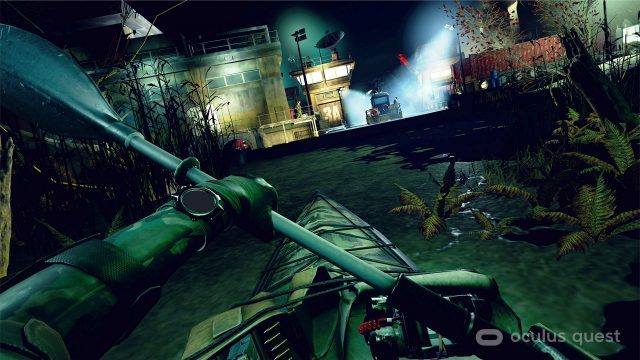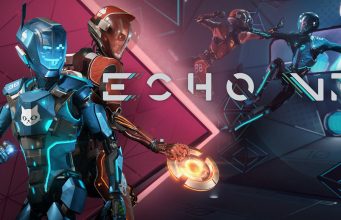VPN used for VR game cheat sells access to your home network
Big Mama VPN tied to network which offers access to residential IP addresses.
In the hit virtual reality game Gorilla Tag, you swing your arms to pull your primate character around—clambering through virtual worlds, climbing up trees and, above all, trying to avoid an infectious mob of other gamers. If you’re caught, you join the horde. However, some kids playing the game claim to have found a way to cheat and easily “tag” opponents.
Over the past year, teenagers have produced video tutorials showing how to side-load a virtual private network (VPN) onto Meta’s virtual reality headsets and use the location-changing technology to get ahead in the game. Using a VPN, according to the tutorials, introduces a delay that makes it easier to sneak up and tag other players.
While the workaround is likely to be an annoying but relatively harmless bit of in-game cheating, there’s a catch. The free VPN app that the video tutorials point to, Big Mama VPN, is also selling access to its users’ home internet connections—with buyers essentially piggybacking on the VR headset’s IP address to hide their own online activity.
This technique of rerouting traffic, which is best known as a residential proxy and more commonly happens through phones, has become increasingly popular with cybercriminals who use proxy networks to conduct cyberattacks and use botnets. While the Big Mama VPN works as it is supposed to, the company’s associated proxy services have been heavily touted on cybercrime forums and publicly linked to at least one cyberattack.
Researchers at cybersecurity company Trend Micro first spotted Meta’s VR headsets appearing in its threat intelligence residential proxy data earlier this year, before tracking down that teenagers were using Big Mama to play Gorilla Tag. An unpublished analysis that Trend Micro shared with WIRED says its data shows that the VR headsets were the third most popular devices using the Big Mama VPN app, after devices from Samsung and Xiaomi.
“If you’ve downloaded it, there’s a very high likelihood that your device is for sale in the marketplace for Big Mama,” says Stephen Hilt, a senior threat researcher at Trend Micro. Hilt says that while Big Mama VPN may be being used because it is free, doesn’t require users to create an account, and apparently doesn’t have any data limits, security researchers have long warned that using free VPNs can open people up to privacy and security risks.
These risks may be amplified when that app is linked to a residential proxy. Proxies can “allow people with malicious intent to use your internet connection to potentially use it for their attacks, meaning that your device and your home IP address may be involved in a cyberattack against a corporation or a nation state,” Hilt says.
“Gorilla Tag is a place to have fun with your friends and be playful and creative—anything that disturbs that is not cool with us,” a spokesperson for Gorilla Tag creator Another Axiom says, adding they use “anti-cheat mechanisms” to detect suspicious behavior. Meta did not respond to a request for comment about VPNs being side-loaded onto its headsets.
Proxies rising
Big Mama is made up of two parts: There’s the free VPN app, which is available on the Google Play store for Android devices and has been downloaded more than 1 million times. Then there’s the Big Mama Proxy Network, which allows people (among other options) to buy shared access to “real” 4G and home Wi-Fi IP addresses for as little as 40 cents for 24 hours.
Vincent Hinderer, a cyber threat intelligence team manager who has researched the wider residential proxy market at Orange Cyberdefense, says there are various scenarios where residential proxies are used, both for people who are having traffic routed through their devices and also those buying and selling proxy services. “It’s sometimes a gray zone legally and ethically,” Hinderer says.
For proxy networks, Hinderer says, one end of the spectrum is where networks could be used as a way for companies to scrape pricing details from their competitors’ websites. Other uses can include ad verification or people scalping sneakers during sales. They may be considered ethically murky but not necessarily illegal.
At the other end of the scale, according to Orange’s research, residential proxy networks have broadly been used for cyber espionage by Russian hackers, in social engineering efforts, as part of DDoS attacks, phishing, botnets, and more. “We have cybercriminals using them knowingly,” Hinderer says of residential proxy networks generally, with Orange Cyberdefense having frequently seen proxy traffic in logs linked to cyberattacks it has investigated. Orange’s research did not specifically look at uses of Big Mama’s services.
Some people can consent to having their devices used in proxy networks and be paid for their connections, Hinderer says, while others may be included because they agreed to it in a service’s terms and conditions—something research has long shown people don’t often read or understand.
Big Mama doesn’t make it a secret that people who use its VPN will have other traffic routed through their networks. Within the app it says it “may transport other customer’s traffic through” the device that’s connected to the VPN, while it is also mentioned in the terms of use and on a FAQ page about how the app is free.
The Big Mama Network page advertises its proxies as being available to be used for ad verification, buying online tickets, price comparison, web scraping, SEO, and a host of other use cases. When a user signs up, they’re shown a list of locations proxy devices are located in, their internet service provider, and how much each connection costs.
This marketplace, at the time of writing, lists 21,000 IP addresses for sale in the United Arab Emirates, 4,000 in the US, and tens to hundreds of other IP addresses in a host of other countries. Payments can only be made in cryptocurrency. Its terms of service say the network is only provided for “legal purposes,” and people using it for fraud or other illicit activities will be banned.
Despite this, cybercriminals appear to have taken a keen interest in the service. Trend Micro’s analysis claims Big Mama has been regularly promoted on underground forums where cybercriminals discuss buying tools for malicious purposes. The posts started in 2020. Similarly, Israeli security firm Kela has found more than 1,000 posts relating to the Big Mama proxy network across 40 different forums and Telegram channels.
Kela’s analysis, shared with WIRED, shows accounts called “bigmama_network” and “bigmama” posted across at least 10 forums, including cybercrime forums such as WWHClub, Exploit, and Carder. The ads list prices, free trials, and the Telegram and other contact details of Big Mama.
It is unclear who made these posts, and Big Mama tells WIRED that it does not advertise.
Posts from these accounts also said, among other things, that “anonymous” bitcoin payments are available. The majority of the posts, Kela’s analysis says, were made by the accounts around 2020 and 2021. Although, an account called “bigmama_network” has been posting on the clearweb Blackhat World SEO forum until October this year, where it has claimed its Telegram account has been deleted multiple times.
In other posts during the last year, according to the Kela analysis, cybercrime forum users have recommended Big Mama or shared tips about the configurations people should use. In April this year, security company Cisco Talos said it had seen traffic from the Big Mama Proxy, alongside other proxies, being used by attackers trying to brute force their way into a variety of company systems.
Mixed messages
Big Mama has few details about its ownership or leadership on its website. The company’s terms of service say that a business called BigMama SRL is registered in Romania, although a previous version of its website from 2022, and at least one live page now, lists a legal address for BigMama LLC in Wyoming. The US-based business was dissolved in April and is now listed as inactive, according to the Wyoming Secretary of State’s website.
A person using the name Alex A responded to an email from WIRED about how Big Mama operates. In the email, they say that information about free users’ connections being sold to third parties through the Big Mama Network is “duplicated on the app market and in the application itself several times,” and people have to accept the terms of conditions to use the VPN. They say the Big Mama VPN is officially only available from the Google Play Store.
“We do not advertise and have never advertised our services on the forums you have mentioned,” the email says. They say they were not aware of the April findings from Talos about its network being used as part of a cyberattack. “We do block spam, DDOS, SSH as well as local network etc. We log user activity to cooperate with law enforcement agencies,” the email says.
The Alex A persona asked WIRED to send it more details about the adverts on cybercrime forums, details about the Talos findings, and information about teenagers using Big Mama on Oculus devices, saying they would be “happy” to answer further questions. However, they did not respond to any further emails with additional details about the research findings and questions about their security measures, whether they believe someone was impersonating Big Mama to post on cybercrime forums, the identity of Alex A, or who runs the company.
During its analysis, Trend Micro’s Hilt says that the company also found a security vulnerability within the Big Mama VPN, which could have allowed a proxy user to access someone’s local network if exploited. The company says it reported the flaw to Big Mama, which fixed it within a week, a detail Alex A confirmed.
Ultimately, Hilt says, there are potential risks whenever anyone downloads and uses a free VPN. “All free VPNs come with a trade-off of privacy or security concerns,” he says. That applies to people side-loading them onto their VR headsets. “If you’re downloading applications from the internet that aren’t from the official stores, there’s always the inherent risk that it isn’t what you think it is. And that comes true even with Oculus devices.”
This story originally appeared on wired.com.
VPN used for VR game cheat sells access to your home network Read More »











